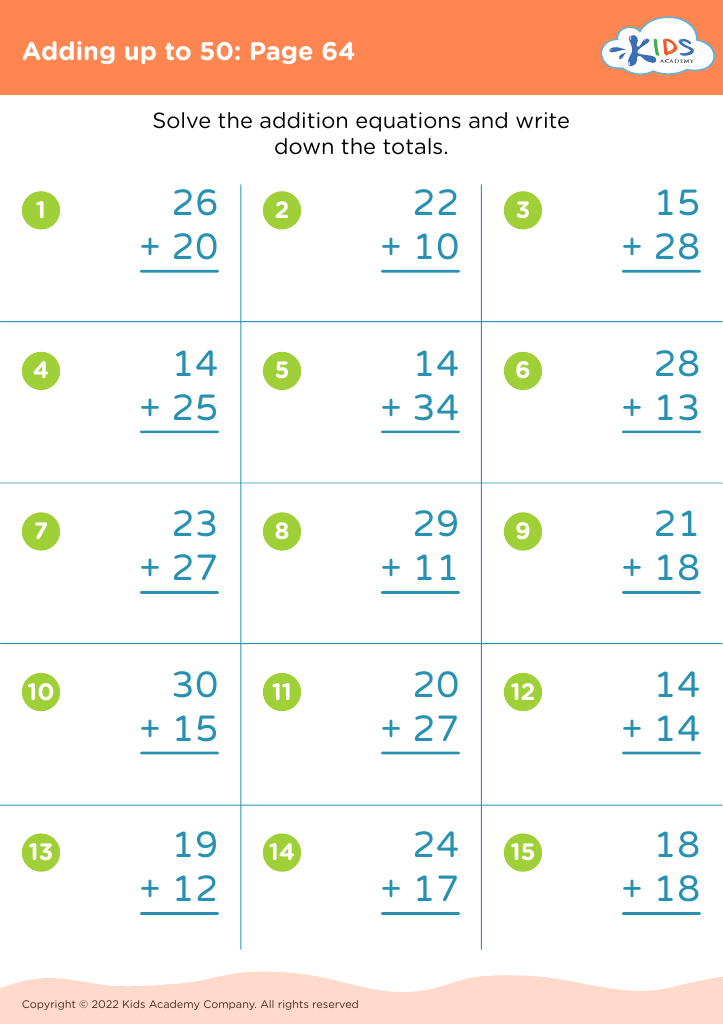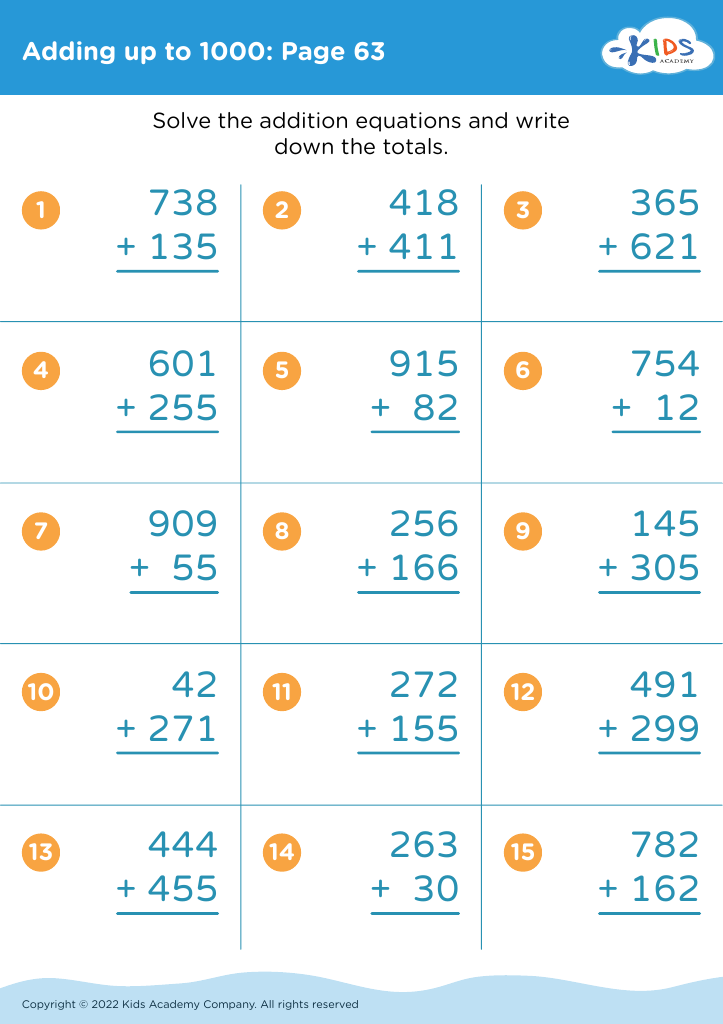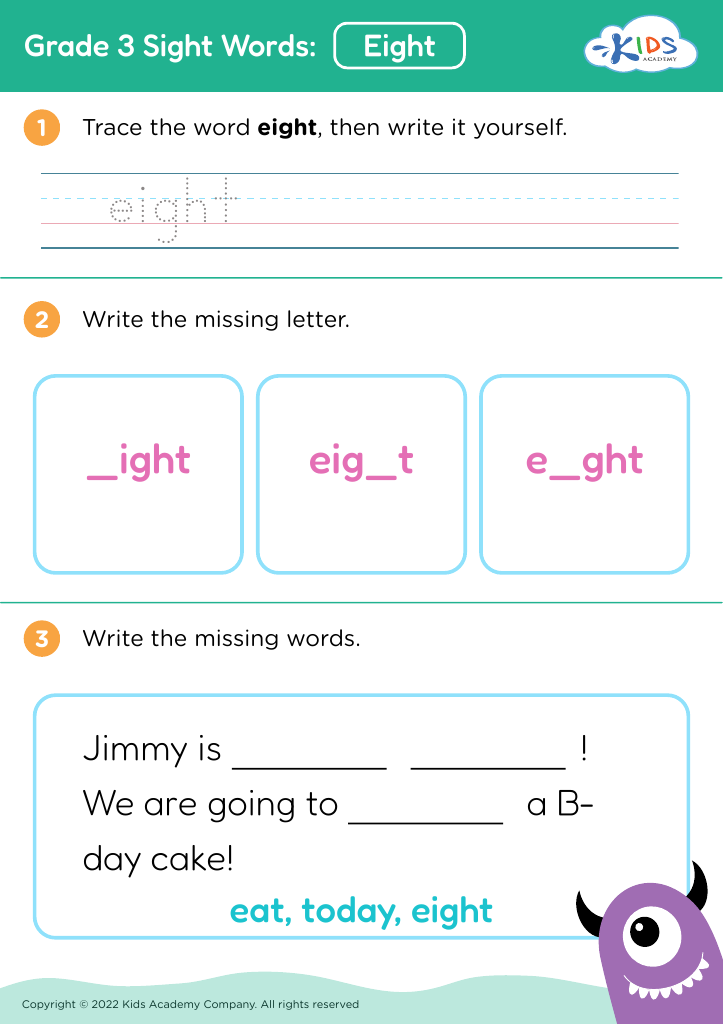Comparing numbers Worksheets for Ages 8-9
5 filtered results
-
From - To
Introducing our "Comparing Numbers Worksheets for Ages 8-9"! Designed to sharpen math skills, these engaging worksheets help children understand numerical relationships and develop critical thinking. With diverse activities ranging from comparing single-digit to multi-digit numbers, students enhance their grasp of greater than, less than, and equal to concepts. Perfect for home or classroom use, our printables combine fun visuals with interactive exercises, making learning enjoyable. Boost your child's confidence and performance in math with our expertly crafted comparing numbers worksheets. Explore today and watch your young mathematician thrive!
Helping children ages 8-9 learn to compare numbers is crucial for their overall math development and serves as a foundation for more complex mathematical concepts. During these formative years, students transition from simple counting to understanding and manipulating larger numbers, making comparison skills essential.
By learning to compare numbers, children enhance their number sense, which is the ability to recognize, relate, and work with numbers in different contexts. This skill is fundamental for tasks such as estimating, organizing data, and solving real-world problems. When children can determine which numbers are greater, less, or equal, they become better equipped to tackle addition, subtraction, multiplication, and division as they progress in their education.
Moreover, comparing numbers fosters critical thinking and decision-making capabilities. Students learn to analyze numerical relationships, spot patterns, and make inferences — skills that are valuable not only in math but across all academic disciplines.
Engaging with numerical comparisons also promotes confidence in handling math tasks. Early positive experiences in math can shape a child's attitude towards the subject, making them more likely to approach future challenges with a constructive mindset. Therefore, parents and teachers should care about comparing numbers, as it lays the groundwork for academic success and intellectual growth.

























